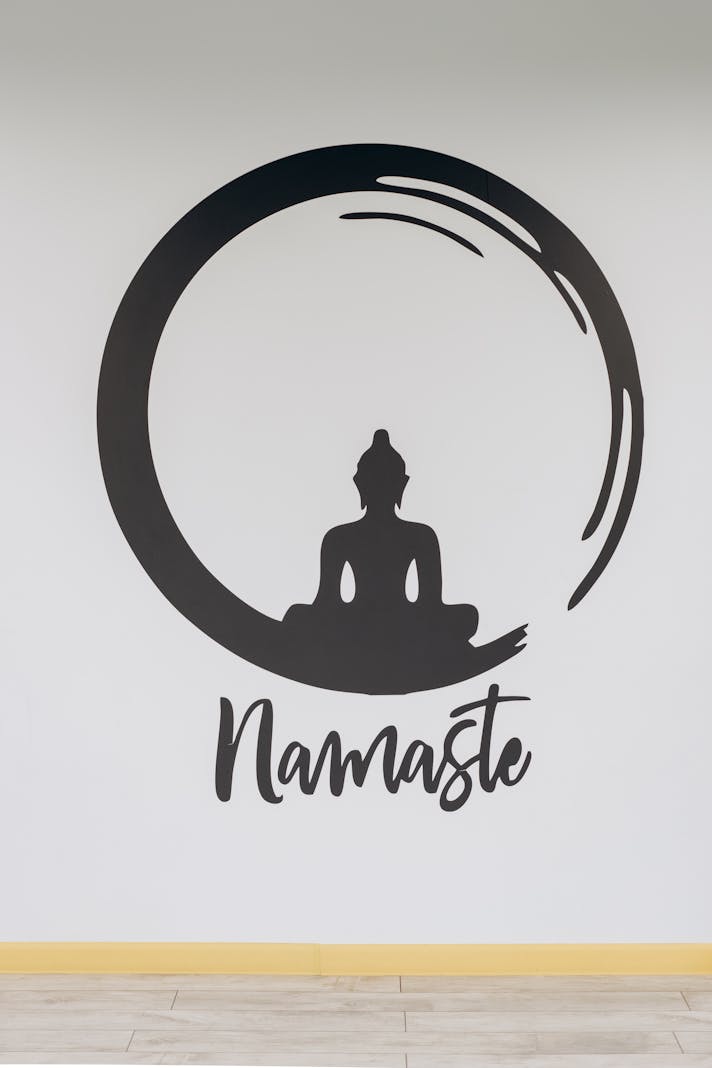Aparigraha

The eight limbs of yoga, as described by Patanjali, begin with the yamas and niyamas,. The first group is a set of five precepts that are presented as what not to do: don’t be violent, don’t steal, don’t lie, don’t be faithless, and don’t covet. This final yama, the precept against avarice, is perhaps the one that goes most fully against modern culture. Pick up any magazine, and you will find at least one story on the “must-haves” for fall. Capitalism itself is built on a foundation of acquisition – the trendy restaurant du jour, the new car, the front-row tickets to the concert of the year… when does excess become dangerous?
Skillful execution of this yama requires balance as well as a foundation in the previous precepts. Too much frugality, and we are committing violence against ourselves, violating the idea of ahimsa. Too little restraint, and we steal from others, violating asteya. Honesty, or satya, is required to determine where the balance lies. And brahmacharya, or fidelity, is a key aspect of being committed to working with desires and indulging them only when appropriate. Aparigraha asks that we consider what is just enough in our lives, and attempt the Herculean task of living in balance.
It’s been well-documented that the fast fashion clothing industry is built on a foundation of exploitation of natural and human capital, and that it contributes to the degradation of the earth. The same can be said for the use of nearly any modern good. Consider all that we receive from the energy grid. When we want more than is necessary, we steal from others and tax the workings of an entire area. Think also of the excessive Western consumption of meat at a time when people in other countries are starving, encouraging the destruction of rainforest acres to make room for more ranching. All of these are examples of lives out of balance due to our covetous natures.
Human nature is, as the saying goes, what it is. We lie to ourselves if we assume that we can simply stop coveting what’s out there; we are going to experience desires and wants throughout the course of our lives. However, it’s possible to work with these cravings more skillfully and to counter them with a commitment to use less and live more consciously. Perhaps the first step can be a tiny one; over the course of a lifetime, little actions add up to big changes.
What if we made a conscious decision to buy less and use what we own for longer periods of time? When we buy food to consume at home, do we use everything we buy, creating meal plans that prevent spoilage as much as possible? Do we buy a new car every year, or do we take care of the one we have, driving it for many years? All of these are tiny ways that we can rebel against a throw-away culture.
In our personal relationships, we also can make little changes to improve our aparigrapha. We can consciously choose to cherish our friendships and invest time in them, resisting our compulsion for popularity. We can understand our desire to move up the corporate ladder as a choice and slow down our career when it begins to eat away at the rest of our life. We can work on understanding our loved ones, resisting the urge to covet someone else’s parents, someone else’s romance. Making appropriate changes is important, but so too is knowing when it’s time to settle in and work with what we have.
Aparigrapha is a difficult yama, as it calls for serious thinking, deliberate focus, and skillful action. Yet, when we take up this practice, we find a deeper contentment in our lives and a resultant energy that allows us to share what we have with others. This final yama, a combination of the previous ones, propels us into the other limbs of yoga, ensuring that we have the time, energy, wisdom, and will to pursue our spiritual growth.
Skillful execution of this yama requires balance as well as a foundation in the previous precepts. Too much frugality, and we are committing violence against ourselves, violating the idea of ahimsa. Too little restraint, and we steal from others, violating asteya. Honesty, or satya, is required to determine where the balance lies. And brahmacharya, or fidelity, is a key aspect of being committed to working with desires and indulging them only when appropriate. Aparigraha asks that we consider what is just enough in our lives, and attempt the Herculean task of living in balance.
It’s been well-documented that the fast fashion clothing industry is built on a foundation of exploitation of natural and human capital, and that it contributes to the degradation of the earth. The same can be said for the use of nearly any modern good. Consider all that we receive from the energy grid. When we want more than is necessary, we steal from others and tax the workings of an entire area. Think also of the excessive Western consumption of meat at a time when people in other countries are starving, encouraging the destruction of rainforest acres to make room for more ranching. All of these are examples of lives out of balance due to our covetous natures.
Human nature is, as the saying goes, what it is. We lie to ourselves if we assume that we can simply stop coveting what’s out there; we are going to experience desires and wants throughout the course of our lives. However, it’s possible to work with these cravings more skillfully and to counter them with a commitment to use less and live more consciously. Perhaps the first step can be a tiny one; over the course of a lifetime, little actions add up to big changes.
What if we made a conscious decision to buy less and use what we own for longer periods of time? When we buy food to consume at home, do we use everything we buy, creating meal plans that prevent spoilage as much as possible? Do we buy a new car every year, or do we take care of the one we have, driving it for many years? All of these are tiny ways that we can rebel against a throw-away culture.
In our personal relationships, we also can make little changes to improve our aparigrapha. We can consciously choose to cherish our friendships and invest time in them, resisting our compulsion for popularity. We can understand our desire to move up the corporate ladder as a choice and slow down our career when it begins to eat away at the rest of our life. We can work on understanding our loved ones, resisting the urge to covet someone else’s parents, someone else’s romance. Making appropriate changes is important, but so too is knowing when it’s time to settle in and work with what we have.
Aparigrapha is a difficult yama, as it calls for serious thinking, deliberate focus, and skillful action. Yet, when we take up this practice, we find a deeper contentment in our lives and a resultant energy that allows us to share what we have with others. This final yama, a combination of the previous ones, propels us into the other limbs of yoga, ensuring that we have the time, energy, wisdom, and will to pursue our spiritual growth.

Related Articles
Editor's Picks Articles
Top Ten Articles
Previous Features
Site Map
Content copyright © 2023 by Korie Beth Brown. All rights reserved.
This content was written by Korie Beth Brown. If you wish to use this content in any manner, you need written permission. Contact Korie Beth Brown for details.







